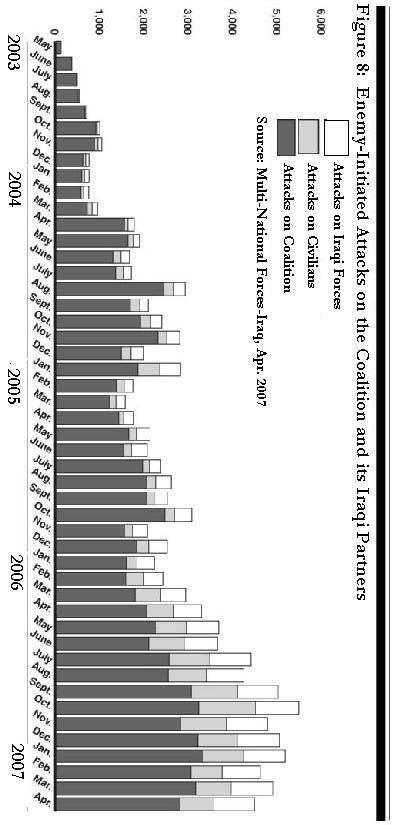On the False Analogy Between Iraq and South Korea
Bush is now talking about a "South Korea" model for Iraq. He likely got this nonsense from John Gaddis at Yale, who I heard talking it last November at the Chicago Humanities Fair.
So what confuses me is the terms of the comparison. Who is playing the role of the Communists and of North Korea? Is it the Sunni Arabs of Iraq? But they are divided into Iraqi/Arab nationalists and Salafi Sunni revivalists. (The secular Arab nationalists are the vast majority according to recent polling). So they are not a united force. They are fighting with one another in al-Anbar. And, the Arab nationalists and the religious Sunnis cannot both play the role of the Communists. Some Arab nationalists are allied with the United States (Egypt, Tunisia, etc.) Others are not (Syria). Some religious Sunnis are allied with the US (Saudi Arabia, Afghanistan). Others are not. So where is the analogy to International Communism? Who is China and who is the Soviet Union? Is it Syria and Iran? But both are ruled by Shiites, not Sunnis!
But let us say that the Sunni Arabs are North Korea. Who is South Korea? Is it the Shiites of Iraq? But they are allied with Iran (isn't it playing the role of China?) And the vast majority of them don't want US troops in Iraq according to polls. There is zero chance that the Shiites of Iraq will put up with a long term presence of US bases in their areas of Iraq. The British base in Basra takes heavy fire all the time.
The only place in Iraq that looks at all like South Korea is maybe Kurdistan. But it is also allied with Iran behind the scenes, and it is in a troubling way giving asylum to Turkish-Kurdish terror groups that are infliction harm on the US's NATO ally, Turkey.
Even as we speak, in Iraq's north, Turkish military forces and now 20 tanks are massing on the Iraqi border, apparently poised for "hot pursuit" of Kurdish guerrillas of the Kurdish Workers Party (PKK), who have safe harbor in Iraqi Kurdistan but go over to Turkey and blow things up. There is some danger that the US will be in the middle of all this, though it is allied with both the Kurds and the Turks. Last week US fighter jets based in Iraq made an unauthorized incursion into Turkish air space that the Turks are protesting.
Do we really want to be in the middle of that?
(But see the next, translated, item, below).
So, no, Iraq isn't like Korea in any obvious way, and in fact the analogy strikes me as frankly ridiculous.
Iraqi Foreign Minister Hoshyar Zebari suspects that the Mahdi Army was behind the kidnapping of 5 Britons from the Ministry of Finance on Tuesday. British troops have been skirmishing with and capturing Mahdi Army forces in Basra, so this could be payback or an attempt to trade prisoners.
There were mortar attacks, bombings and firefights around Iraq on Wednesday. Ten died in a firefight in Khalis between Iraqi government troops and local Sunni Arab guerrillas (the city is under curfew after these heavy clashes). The US raided Sadr City looking, presumably, for those British security guards, and taking 5 men into custody.
23 bodies were found in Baghdad on Wednesday, according to McClatchy. Four uniformed policemen were kidnapped in Tikrit north of Baghdad.
Iran's foreign minister says that US-Iranian talks on security in Iraq may continue.
Iraq, Sudan, and Israel/Palestine are the most violent countries in the world, according to a new index.
Labels: Iraq
For "cont'd" postings, click here.
|
|
 |  |  |
|---|
| Email to a Friend: | |
|---|


 |
|
 Facebook
Facebook




